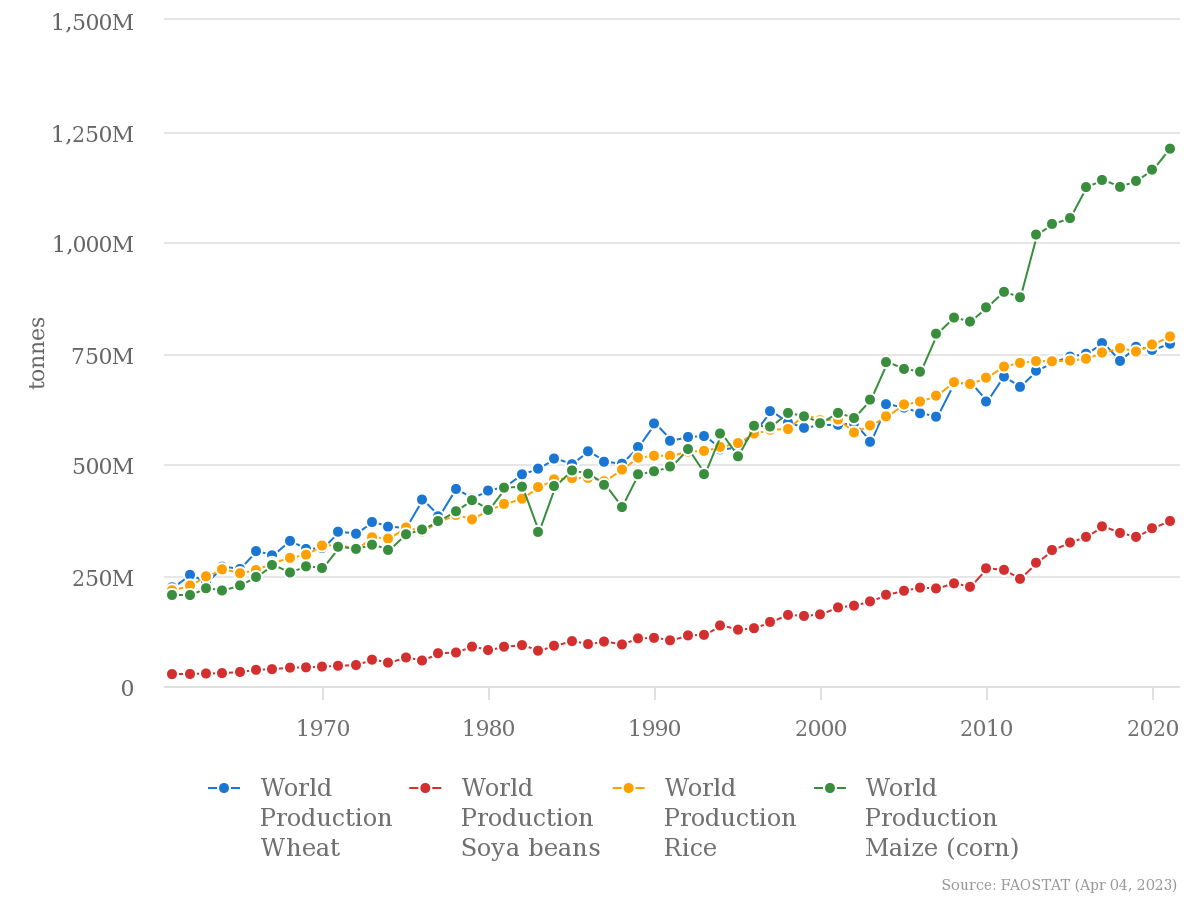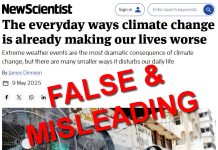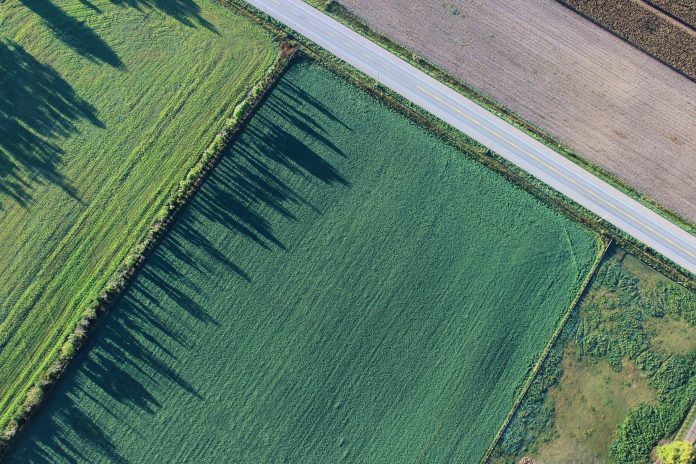A recent post by AgFunder News, a news site that covers “foodtech” and “agtech” startups and venture capital topics, reports that climate change is harming the growth in crop productivity. This is false. The post largely parrots claims made in the latest U.N. Intergovernmental Panel on Climate Change Sixth Synthesis Report that climate change is a threat to food production. However, actual global food production data show no sign that crop production or yields have been declining due to climate change.
The article, “Climate change is slowing growth in agricultural productivity, latest IPCC report finds,” accurately observes that extreme weather like floods and drought can impact crop production. It acknowledges that these impacts are “unevenly distributed”—which appears to be a euphemistic way of saying that the poor, or those countries with non-modern agricultural sectors, suffer worse when extreme weather occurs.
The post then asserts that although “[t]hough agricultural productivity has increased over the last 50 years, climate change has slowed this growth . . . .”
AgFunder News provides no evidence to back this claim, because no such evidence exists. Data from U.N. Food and Agriculture Organization for major food crops like corn, rice, soy beans, and wheat, for example, refutes any claim production has declined during the recent period of modest warming. (See figure below)

Each of these crops have set new records for production repeatedly over the past few decades, including since 2020, the supposed “warmest decades on record.” To the extent that there has been any slowing in the rate of growth to agricultural production, it is due to previously revolutionary technology like synthetic fertilizers and heavy machinery having become common across the globe. No climate change “fingerprint” is seen in the overall production trends.
Indeed, growth has continued, even as many farmers have shifted to growing organic produce, which has reduced production of some crops, and as some nations are limiting the use of fossil fuel based fertilizers and pesticides in an effort to fight climate change, as described by Climate Realism here and here, for example. The latter is the only negative way whereby climate change, in this case climate policy, is suppressing the rate of increase in crop growth.
AgFunder says “progress” is being made in moving agriculture towards “sustainable development,” ignoring the fact that so-called sustainable farming, eschewing modern fertilizers and pesticides, leads to lower crop production and yields.. Sustainability tends to place a focus on reducing the use of fertilizers, pesticides, and promoting more subsistence agriculture rather than modern industrial, high-yield practices.
Even agricultural production in first world nations, such as England, has suffered under policies their governments have implement to reduce greenhouse gas emissions from agriculture. The Climate Realism post “Thanks, Epoch Times, for Reporting on How Net-Zero Policies Are Destroying British Agriculture,” describes how the U.K.’s net-zero policies, like paying farmers leave fields unplanted and other measures that limit food production, have led to produce shortages in grocery stores.
Regarding “least developed countries,” as AgFunder puts it, they suffer greater harms when extreme weather events occur because they lack hardened infrastructure, not because climate change is making the weather worse. AgFunder opines that “for every $1 spent on climate-resilient infrastructure,” $87 was spent on other essential infrastructure that ignored “climate resilience principles.” “Adaptation finance” is important, but suppressing the industrial development of the third world is not going to benefit farm production there.
Sri Lanka’s recent experience with eschewing fossil fuel based agricultural chemicals presents a horrifying example of what happens when a government mandates “climate friendly,” “sustainable,” organic farming. Within six months of the Sri Lankan government’s ban of synthetic fertilizers and pesticides, rice yields dropped 20 percent while prices rose 50 percent. Sri Lanka, once self-sufficient, had to import rice from China. People were starving, protests broke out, the president’s home was destroyed by rioters and the government fell.
Consumers, farmers, and other agricultural industry workers should not be fooled by AgFunder News or the IPCC, agricultural production is doing well, for now, but the policies pushed by climate alarmists—like those in the UK and Sri Lanka– will negatively impact food production if they become more widely implemented.




















Thank you for this insightful information that explains the facts.
You would think it would be easy to learn from experiments gone wrong – Like Sri Lanka – but protecting people does not seem to be at issue with Climate Zealots.
Appreciate you,